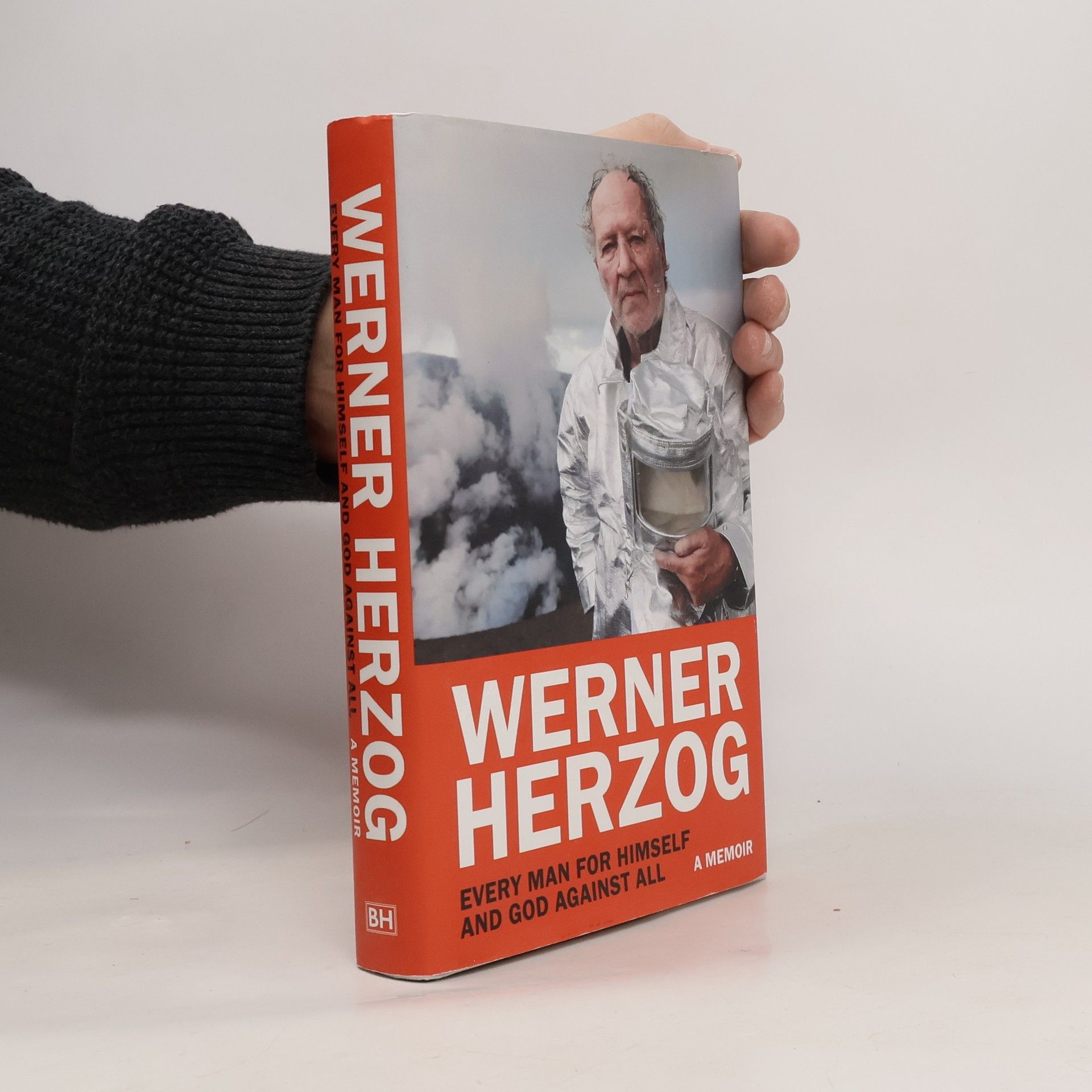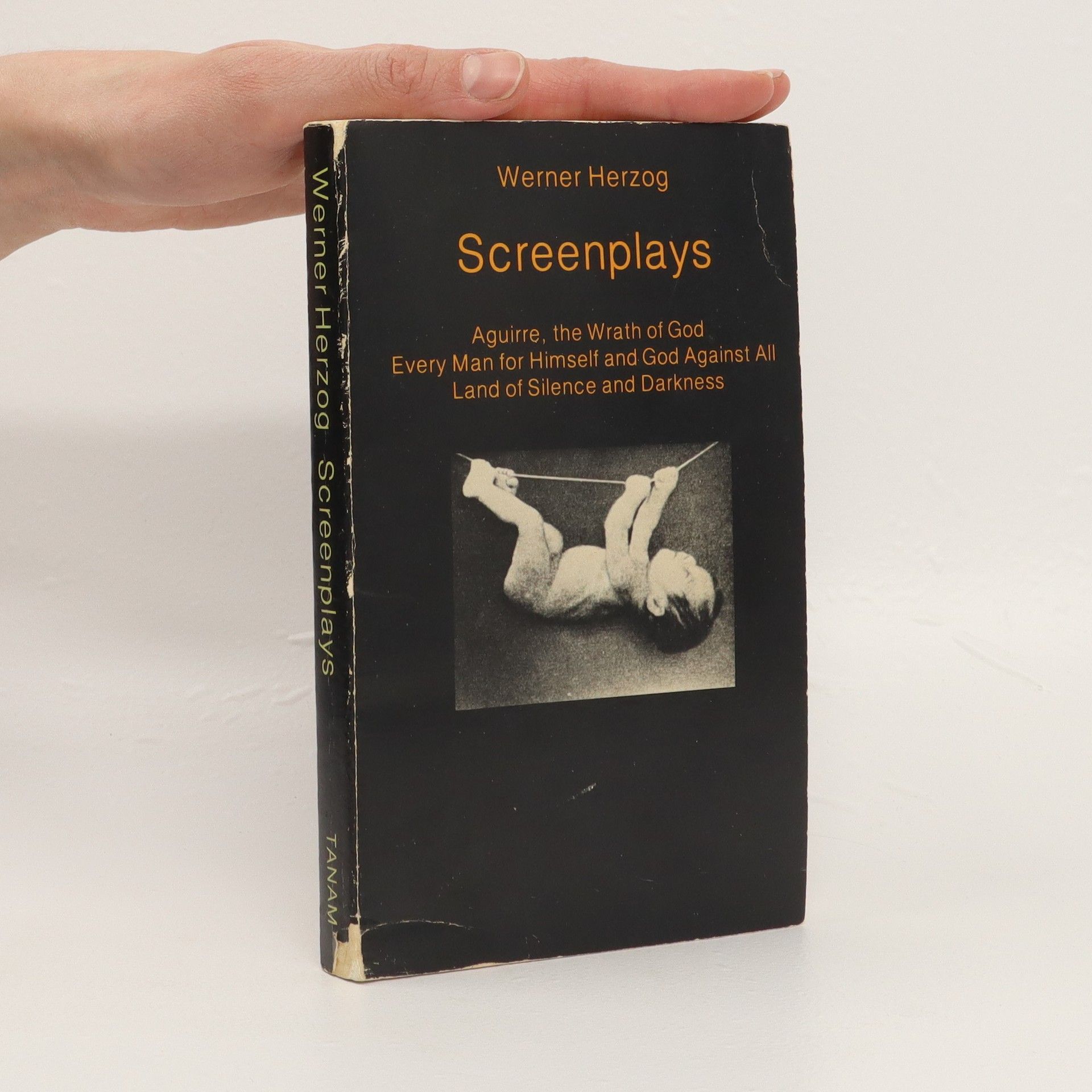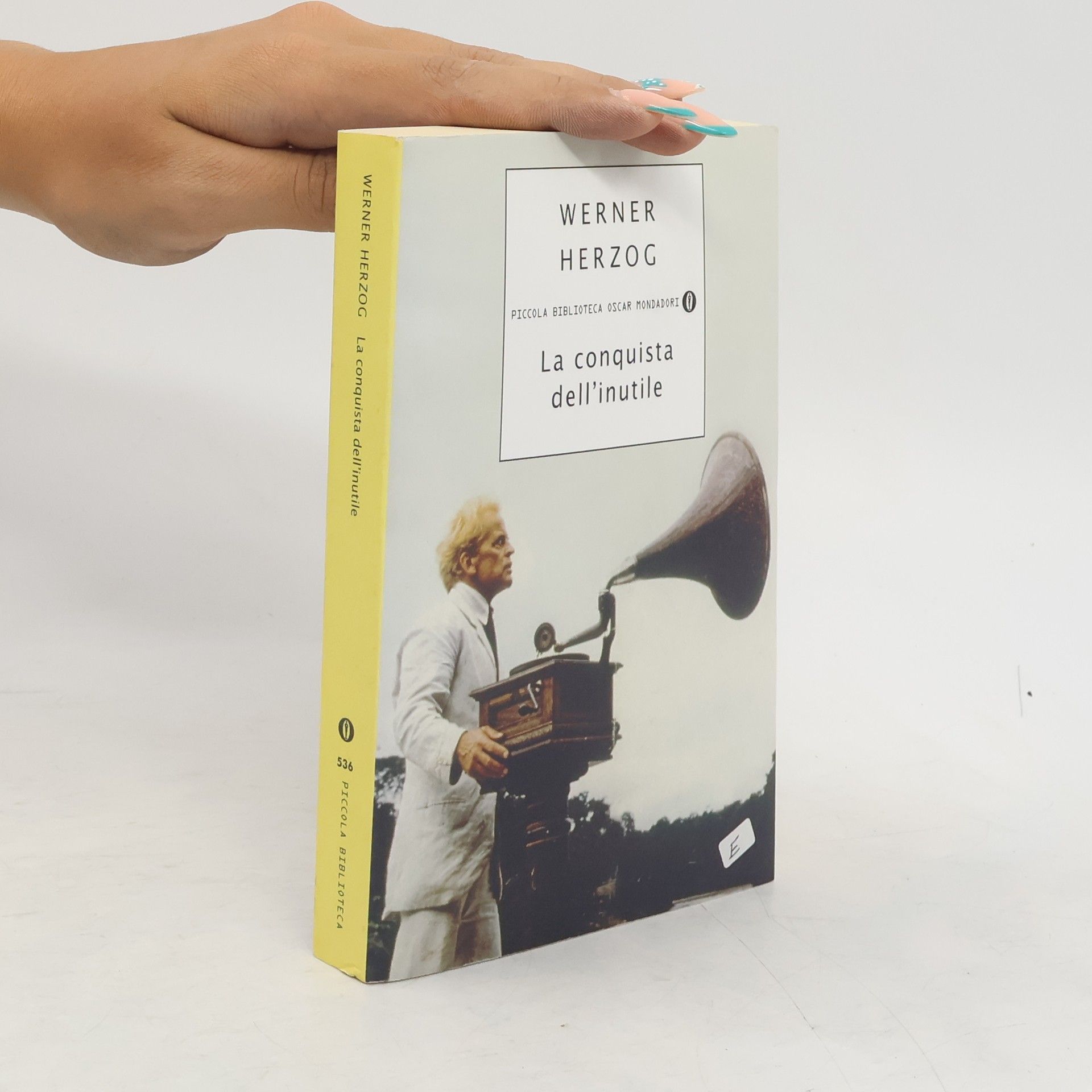La mattina del 7 agosto 1974, centomila newyorkesi si fermarono per ammirare un uomo che camminava su un filo teso clandestinamente fra le Torri gemelle del World Trade Center. Philippe Petit, un ventiquattrenne funambolo francese, attraversò otto volte il cielo a 412 metri da terra, regalando un momento di bellezza e stupore. Questo libro narra la sua impresa leggendaria, dalla meticolosa progettazione, con frustrazioni e difficoltà, al reclutamento dei complici e alle perlustrazioni segrete nelle Torri ancora in costruzione. La prosa di Petit è euforica e funambolica, arricchita da schizzi e fotografie dei suoi amici, creando un legame straordinario tra terra e cielo. Ora che le Torri non esistono più, la sua traversata è diventata un simbolo di speranza, riempiendo il vuoto lasciato dalla loro distruzione. La danza di Philippe Petit rappresenta un atto di bellezza che sfida la gravità e invita a riflettere sulla resilienza e sull’arte.
Werner Herzog Libri
Werner Herzog è un regista i cui film si immergono spesso nel regno di sogni impossibili e talenti bizzarri. Associato al movimento della Nuova Onda Tedesca, il suo cinema è caratterizzato da un'esplorazione distintiva della condizione umana. Herzog esamina i confini dell'ambizione e dell'ossessione, spesso ambientati in paesaggi inospitali. Il suo approccio cinematografico sfida lo spettatore a contemplare il valore della perseveranza di fronte a ostacoli insormontabili.







Piccola Biblioteca Oscar Mondadori - 536: La conquista dell'inutile
- 347pagine
- 13 ore di lettura
Questo testo raccoglie il lungo diario tenuto da Werner Herzog durante i due anni e mezzo di lavorazione del suo film "Fitzcarraldo" nella giungla amazzonica, tra il giugno 1979 e il novembre 1981. Protagonisti di queste pagine sono, come nel film, la lussureggiante foresta pluviale e le sue popolazioni di indios che a centinaia lavorarono come comparse nella pellicola, oltre a Klaus Kinski, l'attore preferito di Herzog. Nel descrivere la quotidianità di un'impresa che non ha nulla di quotidiano, Herzog arriva a ripensarsi radicalmente come artista e come uomo, riflettendo sul ruolo dell'arte, sul concetto di civilizzazione, sul senso della violenza e sull'ineluttabile crudeltà della natura.
A Guide for the Perplexed
- 592pagine
- 21 ore di lettura
'One of the best things published about cinema.' Sight & Sound Herzog was once hailed by Francois Truffaut as the most important director alive. Famous for his frequent collaborations with mercurial actor Klaus Kinski - including the epics Aguirre, the Wrath of God and Fitzcarraldo, and the terrifying Nosferatu - and more recently with documentaries such as Grizzly Man, Cave of Forgotten Dreams and Into the Abyss, Herzog has built a body of work that is one of the most vital in post-war German cinema. Here, he reflects on his legendary and inspiring career.
Screenplays
- 208pagine
- 8 ore di lettura
Every Man for Himself and God Against All
- 355pagine
- 13 ore di lettura
The long-awaited memoir by the legendary filmmaker and celebrated author. Told in Werner Herzog's inimitable voice, this is the story of his epic artistic career, as inventive and daring as anything he has done before. Hauling a steamship over a mountain in the jungle; walking from Munich to Paris in the dead of winter; descending into an active volcano; living in the wilderness among grizzly bears - Werner Herzog has always been intrigued by extremes of human experience. Here, he illuminates the influences and ideas that have driven his creativity and shaped his unique worldview. Herzog's life matches the drama of his famous films: the boy growing up in poverty in a small village in the Alps after the Second World War; the teenager travelling the world in search of adventure that almost cost him his life; the director trying to calm his leading actor Klaus Kinski in the Amazonian jungle. And along the way, Herzog tells of ordinary people with extraordinary stories: rural labourers, circus acrobats, child soldiers. Every Man for Himself and God Against All is at once a personal record of one of the great self-invented lives of our time, and a masterpiece that will enthral fans old and new. In a hypnotic swirl of memory, Herzog untangles and relives his most important experiences and inspirations, telling his story for the first and only time.
Werner Herzog
- 208pagine
- 8 ore di lettura
Interviews with the director of Signs of Life; Aguirre, the Wrath of God to Grizzly Man; and Cave of Forgotten Dreams
Conquest of the Useless
- 320pagine
- 12 ore di lettura
The diary captures the surreal and chaotic experiences of Werner Herzog during the filming of Fitzcarraldo, a film about a rubber baron's ambitious endeavor to transport a steamship over a mountain. Spanning from 1979 to 1981, Herzog’s entries reveal bizarre events, including attacks on the crew's camp and logistical nightmares. He emphasizes that these writings reflect his inner turmoil rather than a straightforward account of the film's production, offering a unique insight into the creative process of a visionary filmmaker amidst the challenges of the Amazon jungle.
Werner Herzog, a revered filmmaker, shares the extraordinary story of Hiroo Onoda, a Japanese soldier who defended a small Philippine island for twenty-nine years after World War II ended. In 1997, while in Tokyo to direct an opera, Herzog expressed a desire to meet Onoda, known for his quixotic defense of the island unaware that the war was over. Their hours-long conversation unraveled Onoda's remarkable journey. At the end of 1944, with Japanese troops withdrawing from Lubang Island, Lieutenant Onoda received orders to hold the island until the Imperial army's return, using guerilla tactics and never taking his own life. He retreated into the jungle, embarking on a campaign that turned weeks into months, months into years, and ultimately decades. Onoda adhered to his orders, surviving first with fellow soldiers and then alone, becoming one with the jungle. Time seemed to dissolve as he continued his mission. In this work, Herzog immortalizes Onoda's absurd yet epic struggle, blending documentary, poetry, and dreamlike narrative. The result is akin to a modern-day Robinson Crusoe, reflecting on the purpose and meaning we assign to our lives.
Retelling of Bram Stoker's Dracula based on the screenplay of the 1979 German film Nosferatu.
The screenplay presents an epic dramatization of Hernán Cortes' conquest of the Aztec empire in 1521, showcasing Werner Herzog's unique storytelling style. Although it has remained unfilmed for over thirty years, readers can now explore this ambitious narrative that delves into themes of power, culture, and the clash of civilizations. Herzog's vision offers a captivating glimpse into a pivotal moment in history, bringing to life the complexities of conquest and its lasting impact.
